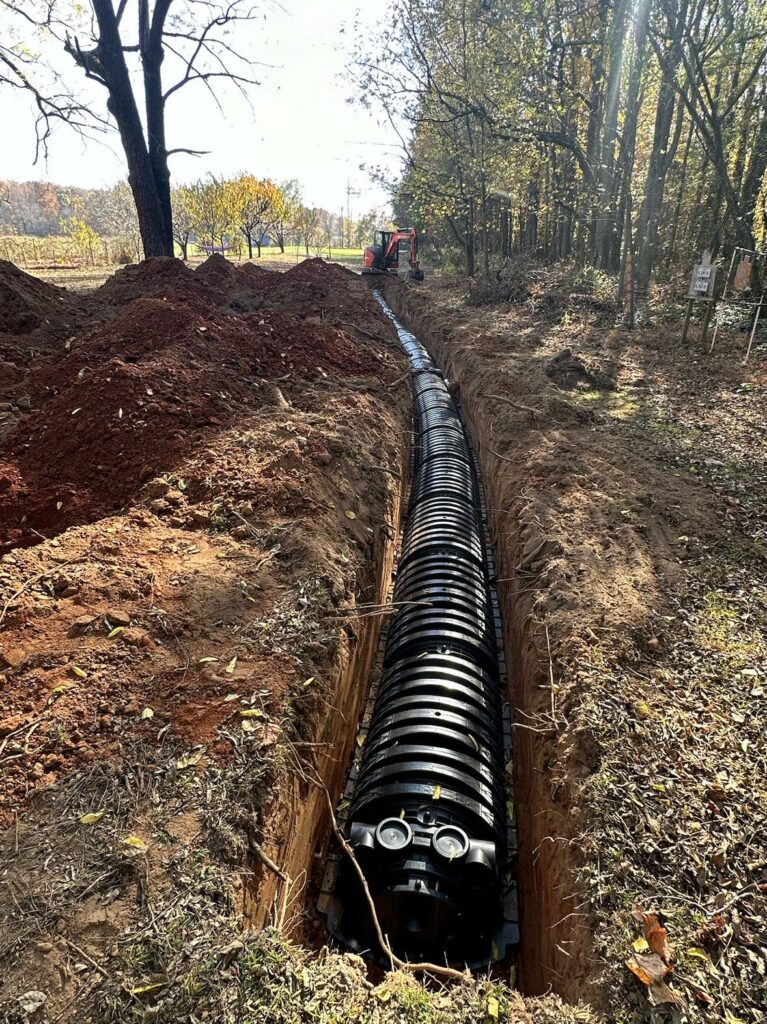Septic systems are the unsung heroes of many households, efficiently managing wastewater disposal. Yet, despite their reliability, they’re not immune to issues. Understanding the common reasons behind septic system repairs is crucial for homeowners to maintain these systems effectively.
1. Lack of Regular Maintenance
One of the primary reasons for septic system repairs is neglecting regular maintenance. Neglecting to pump a septic tank regularly is like ignoring regular maintenance on a car. Both might seem fine for a while, but over time, problems can quietly build up until they become serious issues that are more expensive and complicated to fix. Just as a car needs oil changes and tune-ups to function smoothly, a septic tank requires periodic pumping to prevent clogs, backups, and potential damage to the entire system. Without routine pumping and inspections, minor issues can escalate into costly repairs or replacements.
2. Overloading the System
Excessive water usage or the introduction of non-biodegradable items into the system can overload it. This includes flushing items like wipes, sanitary products, or grease down the drains. Overloading stresses the system, leading to backups, clogs, and potential damage.
3. Age of the System
Septic systems, like any infrastructure, have a lifespan. Aging tanks and components become susceptible to corrosion, leaks, or structural damage. Generally, a well-maintained septic system can last anywhere from 20 to 40 years or more. Systems that exceed their lifespan may require repairs or replacement to ensure proper functionality.
4. Tree Root Intrusion
Tree roots consistently rank among the primary culprits for the clogs we frequently address. They are persistent and can infiltrate the septic system’s pipes seeking moisture. As they grow, they can cause significant damage, leading to cracks, blockages, and system failure. Root invasion often necessitates professional repairs to restore functionality.
5. Soil Compaction or Saturation
The soil’s ability to absorb effluent plays a crucial role in a septic system’s efficiency. Compacted or saturated soil due to heavy traffic or excessive rainfall inhibits proper drainage. This results in backups and pooling, requiring remediation to restore the soil’s absorption capabilities.
6. Improper Installation or Design
An improperly installed or designed septic system can lead to ongoing issues. Inadequate tank sizing, incorrect placement, or faulty design may result in inefficiency or system failure. Being in the industry, we’ve witnessed a wide range of situations – including an individual using a 55-gallon oil drum as makeshift septic tank! We consistently advise getting a septic tank inspection when purchasing a home.
7. Harsh Chemicals
Household chemicals poured down drains can disrupt the natural balance of bacteria within the septic tank responsible for breaking down waste. Harsh chemicals kill beneficial bacteria, reducing the system’s ability to function correctly and potentially causing damage that requires repair.
Maintaining a healthy septic system involves proactive care and attention to potential issues. Regular inspections, proper usage habits, and timely maintenance can significantly reduce the likelihood of costly repairs. Understanding these common reasons behind septic system failures empowers homeowners to take preventive measures, ensuring the longevity and efficient operation of their systems.
If you suspect any issues or require professional assistance, consulting with septic system experts is crucial to address concerns before they escalate into major repairs or replacements. For those in need of septic system repairs in South Carolina or North Carolina, give us a call for expert assistance and reliable solutions tailored to your needs.

